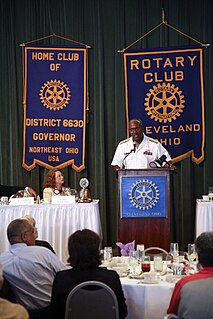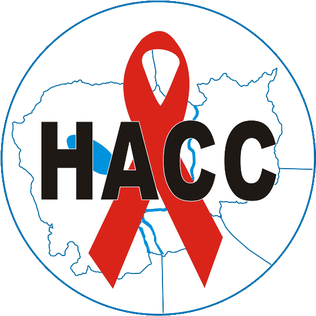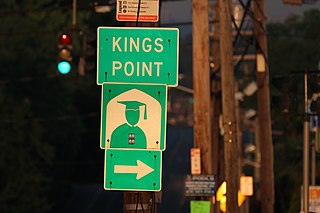UN/CEFACT is the United Nations Centre for Trade Facilitation and Electronic Business. It was established as an intergovernmental body of the United Nations Economic Commission for Europe (UNECE) in 1996 and evolved from UNECE's long tradition of work in trade facilitation which began in 1957

The United States Maritime Administration (MARAD) is an agency of the United States Department of Transportation.
Its programs promote the use of waterborne transportation and its seamless integration with other segments of the transportation system, and the viability of the U.S. merchant marine. The Maritime Administration works in many areas involving ships and shipping, shipbuilding, port operations, vessel operations, national security, environment, and safety. The Maritime Administration is also charged with maintaining the health of the merchant marine, since commercial mariners, vessels, and intermodal facilities are vital for supporting national security, and so the agency provides support and information for current mariners, extensive support for educating future mariners, and programs to educate America's young people about the vital role the maritime industry plays in the lives of all Americans.

The Merchant Marine Act of 1920 is a United States federal statute that provides for the promotion and maintenance of the American merchant marine. Among other purposes, the law regulates maritime commerce in U.S. waters and between U.S. ports. Section 27 of the Merchant Marine Act is known as the Jones Act and deals with cabotage and requires that all goods transported by water between U.S. ports be carried on U.S.-flag ships, constructed in the United States, owned by U.S. citizens, and crewed by U.S. citizens and U.S. permanent residents. The act was introduced by Senator Wesley Jones. The law also defines certain seaman's rights.

The War Shipping Administration (WSA) was a World War II emergency war agency of the US government, tasked to purchase and operate the civilian shipping tonnage the US needed for fighting the war. Both shipbuilding under the Maritime Commission and ship allocation under the WSA to Army, Navy or civilian needs were closely coordinated though Vice Admiral Emory S. Land who continued as head of the Maritime Commission while also heading the WSA.

Port security is part of a broader definition concerning maritime security.It refers to the defense, law and treaty enforcement, and counterterrorism activities that fall within the port and maritime domain. It includes the protection of the seaports themselves and the protection and inspection of the cargo moving through the ports. Security risks related to ports often focus on either the physical security of the port, or security risks within the maritime supply chain.
Sector Commander is the position title of the commanding officer of a United States Coast Guard Sector, usually of the rank of Captain (O-6). The Sector Commander's second-in-command is the Deputy Sector Commander. Also reporting directly to the Sector Commander are the Command Master Chief (CMC), the Senior Reserve Officer, and the Sector's Auxiliary Coordinator.
The Association for Unmanned Vehicle Systems International, also known as AUVSI, is an international nonprofit organization dedicated to promoting and supporting the unmanned systems and robotics industry through communication, education and leadership.
The Office of Global Maritime Situational Awareness (OGMSA) is a United States interagency office with a global reach tasked with enhancing global maritime domain awareness.

Navy Office of Community Outreach (NAVCO) is the U.S. Navy's Chief of Information (CHINFO) national community outreach field activity.

Maritime Awareness Global Network (MAGNET) is an intelligence tool for the collection, correlation, fusion, and dissemination of maritime information via web-enabled user interfaces to specific user groups in support of maritime domain awareness (MDA).

The Global Trade Exchange (GTX) is, or was, a controversial Homeland Security intelligence project, related to maritime-ports data-mining, being one of three pillars of the Safe Ports Act-related Secure Freight Initiatives. The Global Trade Exchange has a mysterious history dating from conception in 2004, a 2007-2008 year of hype, and sudden placement on "hold" status. Described as a ready-to-buy, commercially available database, the GTX was rush-funded by Congress as part of and championed relentlessly by then-United States Secretary of Homeland Security Michael Chertoff in evident disregard of objections of confused and frustrated U.S. private sector trade groups. After a year-long spate of official support, media hype, and after award of Congressional funding of $13 million, the GTX was put "on hold for further study by the [U.S.] Navy" in April 2008, for reasons still yet to-be explained. Touted by senior U.S. officials and Congress in 2007 as an anti-terrorism database for tracking long-haul shipping containers, the Global Trade Exchange's principal focus appears to have a different focus, notably advance trade-finance information for market-making purposes.
The Maritime Safety & Security Information System (MSSIS) is a freely-shared, unclassified, near real-time data collection and distribution network. Its member countries share data from Automatic Identification System (AIS), coastal radar, and other maritime-related systems. MSSIS combines the data from participating nations into a single data stream through secure Internet-based servers. Through MSSIS, participating governments can view real-time AIS data from around the world in a wide range of geographic display options, including text, photo overlays, electronic charts, and Google Earth. Displays can also integrate additional features such as user-provided radar overlays.
Global Maritime Situational Awareness (GMSA) is defined in the U.S. National Concept of Operations for Maritime Domain Awareness, December 2007, as "the comprehensive fusion of data from every agency and by every nation to improve knowledge of the maritime domain." It is an integral element of Maritime Domain Awareness (MDA).
The Cargo Preference Act or Cargo Preference refers generally to legal requirements for the carriage of government-impelled cargoes on the vessels flagged within the registry of that government for the purpose of promoting a national merchant marine. Cargo Preference is commonplace among the world's seafaring nations, including Australia, Brazil, France, Japan, Taiwan.
e-Navigation is a strategy deveped by the International Maritime Organization (IMO), a UN specialized agency, to l shipping through better organization of data on ships and on shore, and better data exchange and communication between ships and the ship and shore. The concept was launched when maritime authorities from seven nations requested the IMO’s Maritime Safety Committee to add the development of an e-navigation strategy to the work programs of the IMO's NAV and COMSAR sub-committees. Working groups in three sub-committees and an intersessional correspondence group, led by Norway, has subsequently developed a Strategy Implementation Plan (SIP). Member states of IMO and a number of Intergovernmental and non-governmental organisations have contributed to the work, including the International Hydrographic Organization (IHO), Comité International Radio-Maritime (CIRM), the International Association of Lighthouse Authorities (IALA), the International Chamber of Shipping (ICS), the Baltic and International Maritime Council (BIMCO) and the International Electrotechnical Commission (IEC)

Peter H. Appel was the administrator of the Research and Innovative Technology Administration (RITA). From 2009 to 2011 Appel was the Obama Administration point person on transportation technology issues and research. He left RITA in late 2011 for the private sector to work on emerging technologies in the transportation industry.

HIV/AIDS Coordinating Committee (HACC) (គណៈកម្មការសំរបសំរួលប្រយុទ្ធនឹងជំងឺអេដស៍) is a HIV/AIDS Cambodian NGO network, representing over 120 NGOs working with HIV/AIDS in Cambodia. It was established in 1993 to coordinate civil society organizations and to promote the sharing of information, experiences and advances from the field among civil society organizations in responding to HIV/AIDS in Cambodia. Its role is to create partnership and collaborate with all stakeholders for an efficient, effective and sustainable response to the HIV/AIDS epidemic in Cambodia and its impact on society. In addition, HACC cooperates with members to coordinate the NGO response to HIV and AIDS at national and provincial level, promote communication and the sharing information among members and between all those involved in the HIV and AIDS response in Cambodia, raising awareness of HIV/AIDS and gaps in response, represents NGO responding to HIV/AIDS at national and international forums where they have received a mandate from their members and to advocate for the full involvement of civil society in determining policy, setting national target, priority activity, developing plan and monitoring the progress in relation to HIV/AIDS.
Maritime domain awareness (MDA) is defined by the International Maritime Organization as the effective understanding of anything associated with the maritime domain that could impact the security, safety, economy, or environment. The maritime domain is defined as all areas and things of, on, under, relating to, adjacent to, or bordering on a sea, ocean, or other navigable waterway, including all maritime-related activities, infrastructure, people, cargo, and vessels and other conveyances.

America's Marine Highway is a United States Department of Transportation (DOT) initiative, aimed to use the United States' 29,000 mi (47,000 km) of navigable waterways to alleviate traffic and wear to the nation's highways caused by tractor trailer traffic. In 2007 Congress included provisions to Public Law 110-140, to 'Offer a waterborne alternative to available land-side transportation services using documented Vessels' and 'Provide transportation services for passengers or freight (or both) that may reduce congestion on land-side infrastructure using documented vessels.' As the United States' population grows, its need to transport freight within its borders also grows. This increases the need for fossil fuels and damages the nation's highways. It is estimated that in 2008, 3.7 billion hours were lost and 2.3 billion US gallons (8.7×109 l) of fuel were spent in traffic jams by Americans. Alongside grassroots efforts to reduce this congestion and greenhouse gas, such as the idea of 'buying local,' the federal government is looking to its navigable waterways to help alleviate the problem.
The Low Emissions Development Strategies Global Partnership aims to advance climate-resilient low emission development and support transitions to a low-carbon economy through coordination, information exchange and cooperation among countries and programs working to advance low-emission economic growth. The partnership was launched in 2011 and brings together more than 160 governmental and international institutions. The implementation, knowledge management, and outreach of LEDS GP is coordinated by a co-secretariat of the Climate & Development Knowledge Network (CDKN) and the National Renewable Energy Laboratory (NREL).













